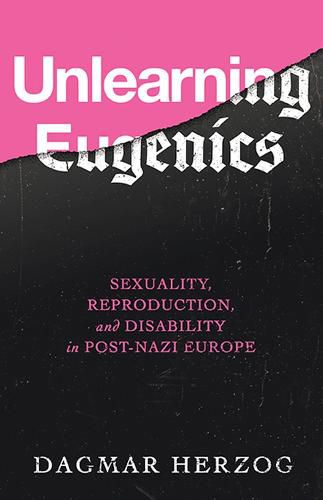Readings Newsletter
Become a Readings Member to make your shopping experience even easier.
Sign in or sign up for free!
You’re not far away from qualifying for FREE standard shipping within Australia
You’ve qualified for FREE standard shipping within Australia
The cart is loading…






Since the defeat of the Nazi Third Reich and the end of its horrific eugenics policies, battles over the politics of life, sex, and death have continued and evolved. Dagmar Herzog documents how reproductive rights and disability rights, both latecomers to the postwar human rights canon, came to be seen as competing-with unexpected consequences.
Bringing together the latest findings in Holocaust studies, the history of religion, and the history of sexuality in postwar-and now also postcommunist-Europe, Unlearning Eugenics shows how central the controversies over sexuality, reproduction, and disability have been to broader processes of secularization and religious renewal. Herzog also restores to the historical record a revelatory array of activists: from Catholic and Protestant theologians who defended abortion rights in the 1960s-70s to historians in the 1980s-90s who uncovered the long-suppressed connections between the mass murder of the disabled and the Holocaust of European Jewry; from feminists involved in the militant cripple movement of the 1980s to lawyers working for right-wing NGOs in the 2000s; and from a handful of pioneers in the 1940s-60s committed to living in intentional community with individuals with cognitive disability to present-day disability self-advocates.
$9.00 standard shipping within Australia
FREE standard shipping within Australia for orders over $100.00
Express & International shipping calculated at checkout
Since the defeat of the Nazi Third Reich and the end of its horrific eugenics policies, battles over the politics of life, sex, and death have continued and evolved. Dagmar Herzog documents how reproductive rights and disability rights, both latecomers to the postwar human rights canon, came to be seen as competing-with unexpected consequences.
Bringing together the latest findings in Holocaust studies, the history of religion, and the history of sexuality in postwar-and now also postcommunist-Europe, Unlearning Eugenics shows how central the controversies over sexuality, reproduction, and disability have been to broader processes of secularization and religious renewal. Herzog also restores to the historical record a revelatory array of activists: from Catholic and Protestant theologians who defended abortion rights in the 1960s-70s to historians in the 1980s-90s who uncovered the long-suppressed connections between the mass murder of the disabled and the Holocaust of European Jewry; from feminists involved in the militant cripple movement of the 1980s to lawyers working for right-wing NGOs in the 2000s; and from a handful of pioneers in the 1940s-60s committed to living in intentional community with individuals with cognitive disability to present-day disability self-advocates.